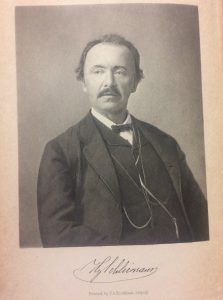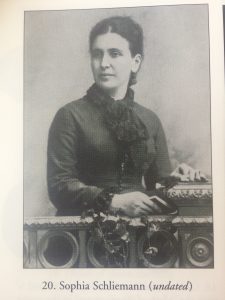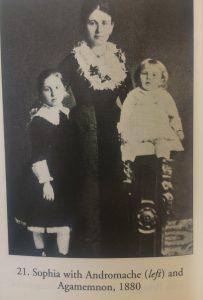Heinrich Schliemann was a German archaeologist who was born on January 6, 1822 and died in Naples Italy on December 26, 1890. 1 Schliemann was born in New Buckow, Mecklenburg-Schwerin, Germany, and moved to the village of Ankershagen same year and then stayed there for eight years. 2
Schliemann is most well known for his excavations of Troy, Mycenae, and Tiryns. Schliemann is often mentioned as the father of modern archaeology despite the fact that modern archaeologist cringe when faced with Schliemann’s way of excavating.

He spent five years as a pupil in retail business in Fürstenberg, then embarked as cabin-boy on board a ship bound for Venezuela. The ship was wrecked on the coast of Texel, but Schliemann was saved and taken to Amsterdam. There he obtained a post in a commercial house and set himself to acquire a thorough knowledge of the European languages. In 1846, he was sent to St. Petersburg as agent for Amsterdam firm. Having amassed a considerable fortune in trade, he retired in 1864 in order to devote himself wholly to the study of archaeology.3 Schliemann began his excavations in 1871. “The gold was ‘found’ in 1873, and was called Priam’s Gold, but from 1880 on it was often called just the Great Treasure.” 4


- Traill, David A. Schliemann of Troy: Treasure and Deceit. London: John Murray, 1995. p.3 ↵
- Schuchhardt, Carl. Schliemann’s Excavations: An Archaeological and Historical Study. Translated by Eugénie Sellers. London, Macmillan and Co., 1891. p.1 ↵
- Schliemann, Henry. Troy and Its Remains; A Narrative of the Researches and Discoveries Made on the Site of Ilium, and the Trojan Plain. London: John Murray, 1875. p.1-7 ↵
- Schuchhardt, Carl. Schliemann’s Excavations: An Archaeological and Historical Study. p.12 ↵